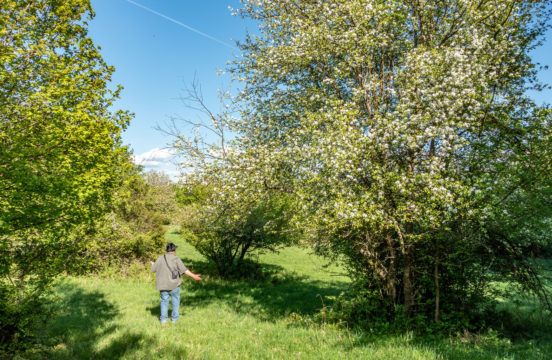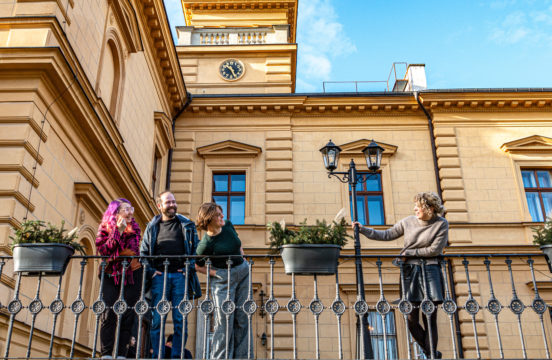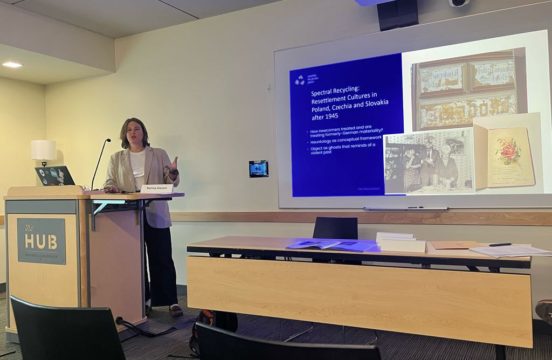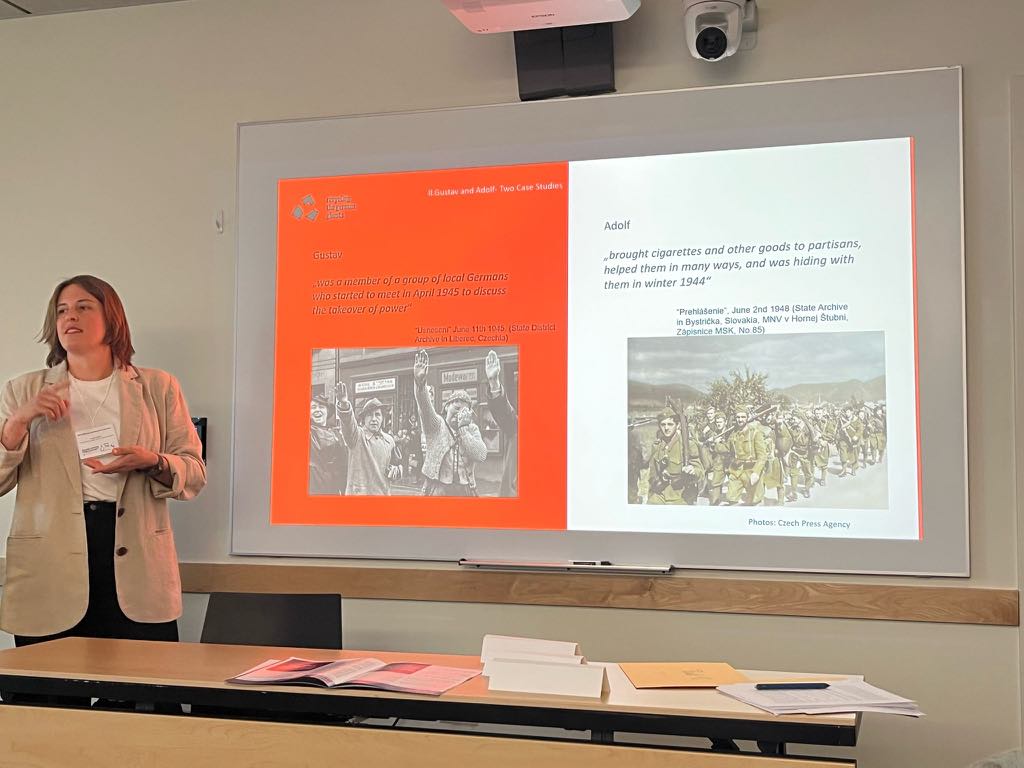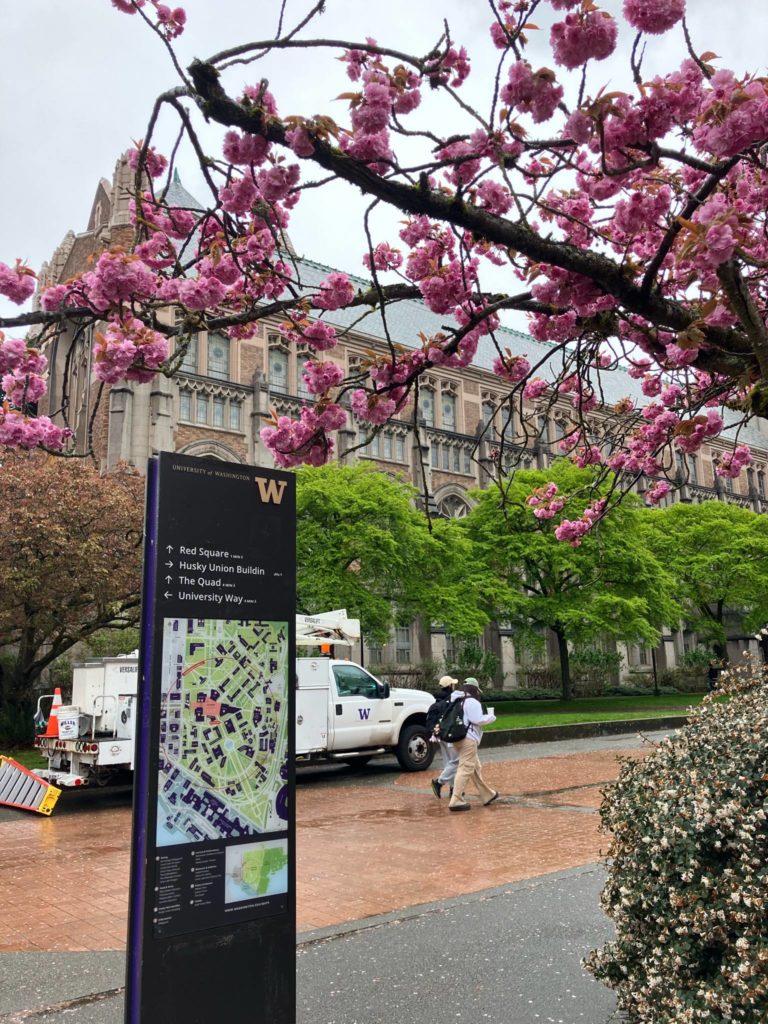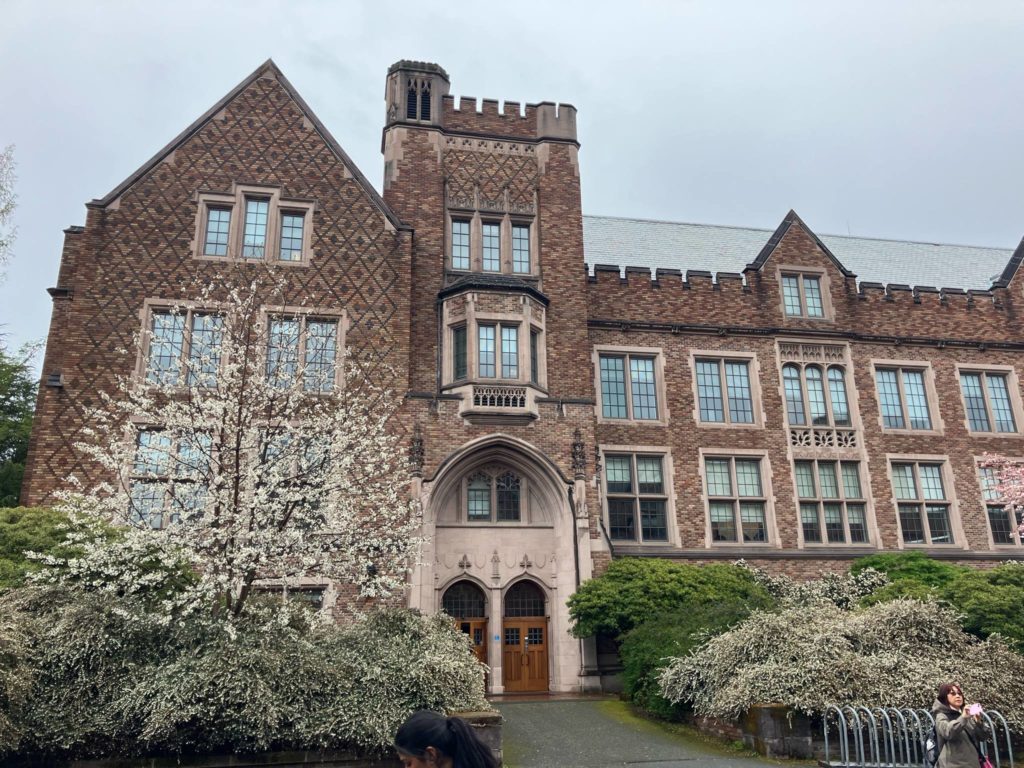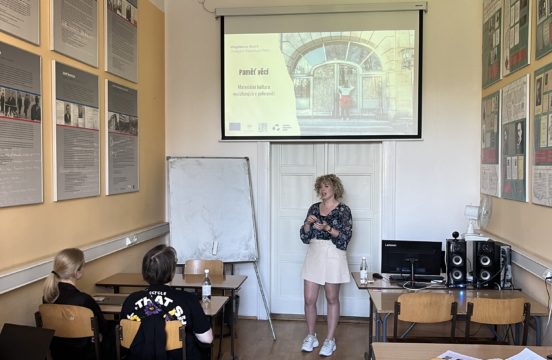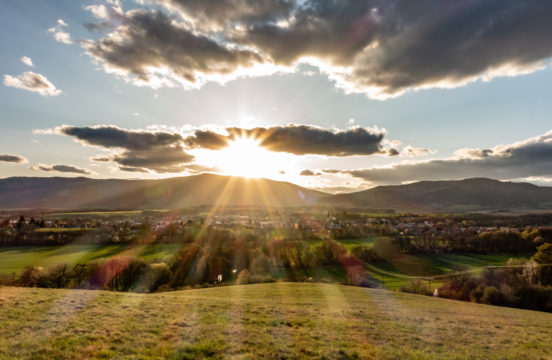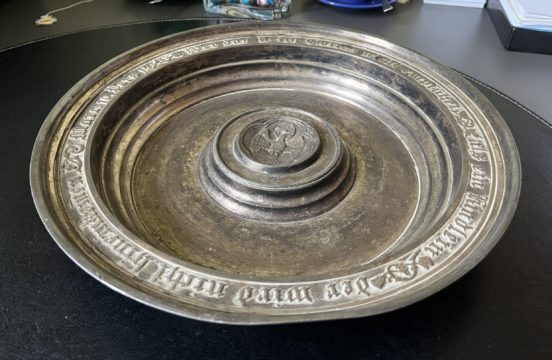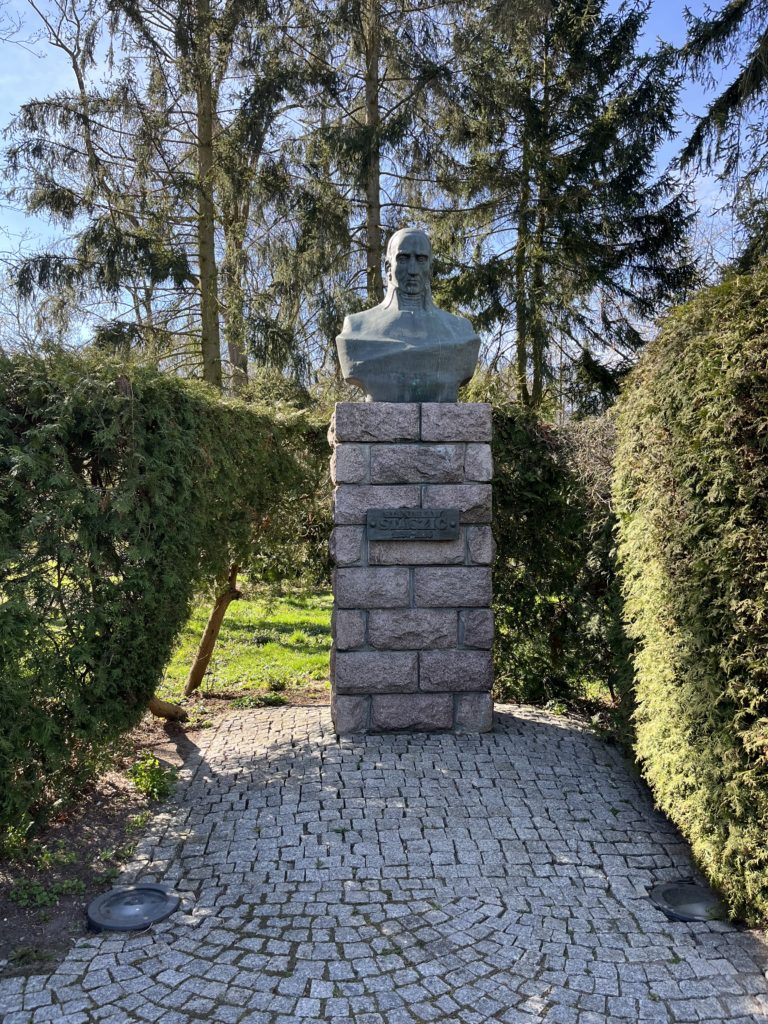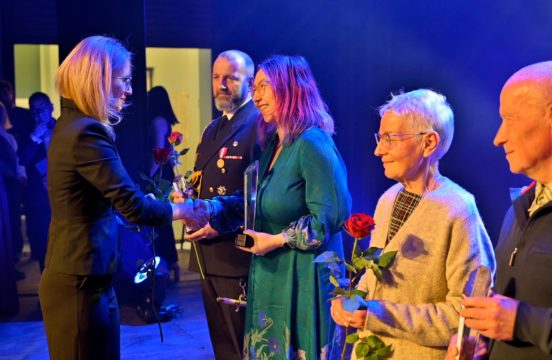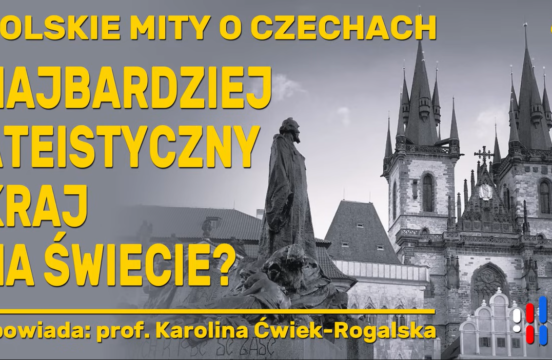The first days of May brought pleasant, sunny weather. Our researcher, Michal Korhel, took advantage of this during his field research in Handlová, setting out to explore traces of the former German inhabitants in the surrounding cultural landscape. He was accompanied on his hikes by a local from a mixed family – his mother was from a German family in Handlová, while his father arrived in the town as a settler from Hungary. Thanks to this guide, Michal gained valuable insights not only into the local forests but also into the lifestyle and farming practices of the German population, as well as the changes that occurred in the region after World War II.
The first day began beneath the hills of Biela skala and Veľký Gríč, which held symbolic value for the German population. Much of the hillsides once served as cattle pastures before the war. This is evidenced by the remains of so-called summer stables and various fruit trees – cherries, apples, and pears – now found on the forest edge or even deep within the woods. These trees were originally planted to deter forest animals from entering garden plots. Today, their blossoms and fruit are living reminders of the German population of Handlová, who planted them decades ago before being forcibly displaced after the war. In many parts of the surrounding countryside, piles of stones can still be found – once the boundaries of individual land plots. These properties were later nationalized under the so-called Beneš decrees. However, since the Czechoslovak state and the new settlers were either unable or unwilling to use the land in the same way as the previous inhabitants, much of it was reforested. Over time, the forest has gradually covered decades, even centuries, of the original population’s labor.
Some of this history is now being rediscovered by local enthusiasts, including Michal’s guide. One example is the source of the Handlovka River, which flows through the town of Handlová. Its location was only recently reidentified. Traces such as a dominant tree and remnants of surrounding walls suggest that the German population was well aware of the spring, possibly using it as a destination for short trips. Once it is cleaned, it is expected to serve a similar recreational purpose once again.
On the second day, Michal and his guide followed in the footsteps of German miners who once commuted to the Handlová mines from nearby Jánová Lehota (known in German as Drexlerhau). Along the route, the miners reportedly paused to pray at a cross, which still stands today. During the walk, Michal again came across the remains of farm buildings and various fruit trees. A nearby lake, artificially created by Germans, was repurposed after the war as a popular leisure destination for the new settlers. As Michal’s guide recalled, children used to build wooden rafts and reenact naval battles on the lake. In May, young couples would sit under a blossoming cherry tree on the shore. Today, the lake appears neglected, and no one would consider swimming in its waters.
Michal concluded his journey in Jánová Lehota. Like Handlová, it features stone houses built by the local German population before World War II. However, Jánová Lehota has preserved more visible evidence of its German past. Perhaps the most prominent is the monument to local inhabitants who died in World War I, located directly opposite the church.
Walking through the landscape around Handlová reveals many traces of the life once led by the original German inhabitants. However, many of these are unnoticed by the average visitor or lie beyond marked trails. That’s why Michal is especially grateful to his guide, whose familiarity with the local landscape and personal stories brought new meaning to the sites they encountered. Through this narrative lens, the remnants were contextualized within both the German heritage and the newer Slovak presence. In this way, walking itself becomes a vital research method.

